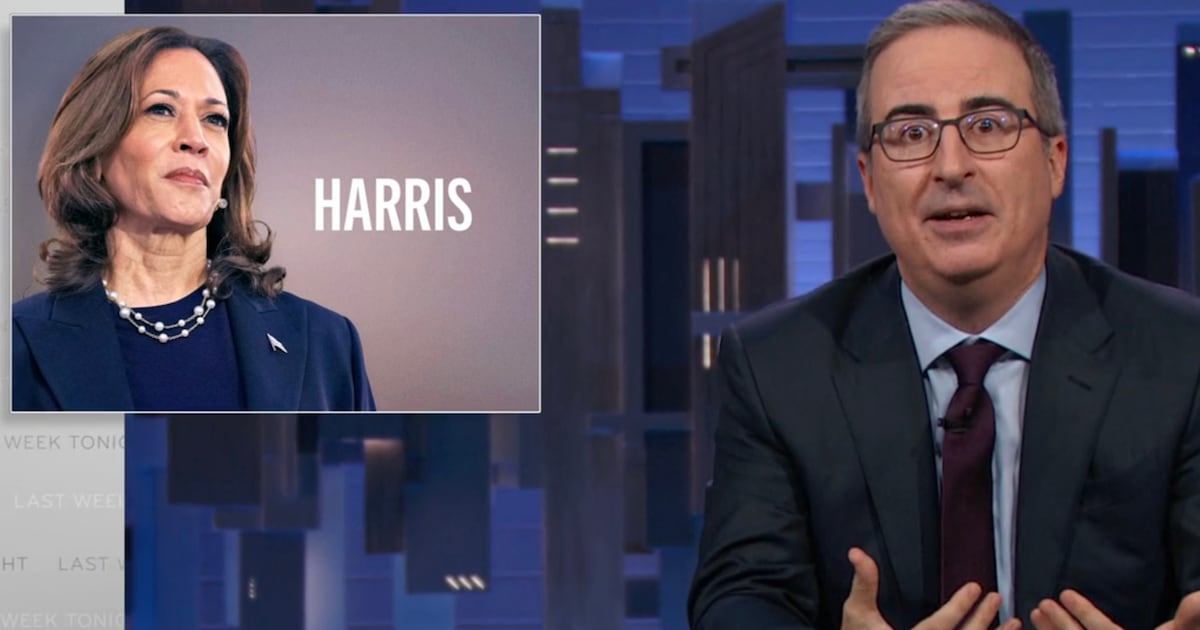“If I were to play Andy Murray, I would lose 6–0, 6–0, in 5 to 6 minutes,” Serena Williams told David Letterman on the Late Show last week. “I wouldn’t do Billie Jean any justice, so Andy, stop it. I’m not gonna let you kill me.”

The No. 1–ranked women’s tennis player was responding to a challenge that Wimbledon champion Murray issued in June. Williams indicated that the debate over arguably the greatest female player of all time versus the men should remain exactly that—a debate. “Yeah, maybe we can have a little bit of a showdown,” Williams joked at Wimbledon. “I get alleys. He gets no serves. I get alleys on my serves, too. He gets no legs, yeah.”
It’s natural to wonder how Williams—nearly 32 and seemingly only getting better with age—would stack up against the men. She’s the top seed as she heads into the second round of play at the last grand slam of the year, the U.S. Open, with a 61–4 season record; the winner of eight titles, including this year’s French Open; and not far removed from the longest winning streak—34 matches—of her 18-year professional career. She is the active leader in career titles with 54 (10 more than sister Venus in 2nd) and 6th on the all-time majors list with 16.
ADVERTISEMENT
With September marking the 40th anniversary of the landmark “Battle of the Sexes” tennis match between Billie Jean King and Bobby Riggs—and a new Outside the Lines report that Riggs, a known gambler and hustler, may have thrown the match for the Mafia—an exhibition of the sort might seem fitting.
“It wouldn’t be the same,” King tells The Daily Beast. “I mean, Bobby was a lot older than I was. The women have never said we’re better than the men, and yet, the men always come back to us, ‘Oh, you think you’re as good or better.’ No, not at all.”
King says that some have been trying to get Williams and American legend John McEnroe to play for the last decade. McEnroe’s been eager to play. “Men have androgens that we don’t have,” she says. “You’re stronger, you’re faster—we don’t argue that at all. So to be honest, Serena against Andy Murray would not work. He would win. And he knows it. She knows it.”
***
King, a nine-time grand slam champ on her way to 12 in her career, initially declined Riggs’s challenge. The late former men’s world No. 1 had comfortably overpowered top female Margaret Court in another match—on Mother’s Day, of all occasions. The world No. 2 then changed her mind.
“As time went on, I started to think I had to play Bobby,” she says in an interview in a forthcoming PBS American Masters series film, making King the first athlete ever profiled on the program. “I didn’t have a choice. If I can win, then I can help move things forward. I could help not only the tour, but I could help social issues move forward.” King founded the Women’s Tennis Association, which also turned 40, in June.
“I like the idea that I’m playing for someone else besides myself,” King said at the time in another clip from the documentary.
Held at Houston’s Astrodome in 1973 and watched by an estimated 50 million primetime American TV viewers, “The Battle of the Sexes” remains the largest live audience (30,472) in the United States to see a match. A 2010 exhibition in Brussels, headlined by Williams, has since topped it, with 35,681 in attendance.
Among plenty of prematch hype and hoopla, King, of course, went on to defeat Riggs 3 sets to none in a best-of-5 format, securing a $100,000 prize. The match also captured the intrigue of the entire nation and helped blaze a trail for the women’s-rights movement, on and off the tennis court. For her role in progressing the cause for which she fought, King was named to Life magazine’s 1990 list of “100 Most Important Americans”—not athletes, people—“of the 20th Century.” She was just one of four athletes included and the only female.
Were Williams to accept a match, be it against Murray or even McEnroe, it wouldn’t be the first time she has tried her hand against the boys. Her longtime hitting partner briefly competed on the men’s professional tour and was at one point No. 35 in the under-16 European rankings.
Perhaps more pertinent, in 1998, Venus and Serena—just 17 and 16 years old, respectively—boasted that they could defeat men outside the ATP 200. German Karsten Braasch, then ranked No. 203, accepted the test in one-set exhibitions with each following their defeats at the Australian Open. The 31-year-old beat Serena, 6–1, and then Venus, 6–2, reportedly smoking a cigarette during the changeover.
Much has clearly changed, with Serena Williams winning all of her 16 majors since that time. In 2010, when the topic again came up, Williams stated she would most likely be unable to beat a man ranked in the top 100 because “men’s and women’s tennis are completely opposite ... Men are just stronger than ladies.” She qualified it, however, contending, “I definitely think if anyone is going to hang there, then it would be me or Venus, because we have more of a power game and are seriously fast.”
***
The serve is the great leveler between men’s and women’s tennis. McEnroe has actually been one of Williams’s biggest supporters. The seven-time men’s singles slam winner is on record calling her “by far the best server in the history of the women’s game.” This ability is what makes Williams uniquely prepared to face the men. She has the second-fastest women’s serve on record, at 128.6 mph, while Venus actually owns the fastest at 129, but is less consistent than her sister. The upper echelons of the men’s game can hit the radar in low-160s, but the 140s are not uncommon, so the serve alone may not be enough to give Williams a real chance.
In his new book, The Sports Gene, author David Epstein, senior writer for Sports Illustrated, explains that while men and women’s world records in running events, from sprinting to the marathon, are fairly similar, science has shown the athletic skill of throwing to be one the biggest disparities between the sexes.
Epstein tells The Daily Beast that although the gap was not as extreme between them for serving versus throwing, the serve-power studies he saw showed that men just hit harder than women. “They were longer-limbed, they rotated their torsos much faster, and sometimes they were taller,” he says.
“I think the reason that we break most sports into men and women is because the best women can’t compete with the best men,” he says, “and we want to give women an opportunity to compete. If a woman can compete with the best men, by all means, do it,” says Epstein. “I don’t think it’s something that women have to do to validate women’s sports in any way. It’d be interesting to see. I’d watch it.”
Still, the curiosity persists for a potential match.
“I don’t think it would have the significance today that it did,” says King, “but I want to make very clear, the women, if you go back through history, we have never said we can beat the guys, ever. We know we can’t. Done deal. I think we can be as entertaining if not more entertaining some days, on certain days. Right now, I’d say the men, they’re on a very high cycle at the moment.”
While U.S. Open mainstays, such as all-time grand-slam leader Roger Federer, have fallen down the ladder a bit this year, which has started to open some spots up in the men’s draw, the women’s side remains relatively predictable. Williams never faced a break point and committed just eight unforced errors in her first-round match. She dispatched unseeded Italian Francesca Schiavone, winner of the 2010 French Open, in just an hour, 6–0, 6–1. For now, Williams’s superiority is something only the women will have to worry about.
Catch the premiere of the American Masters series biography of Billie Jean King on Tuesday, September 10, at 8 p.m. ET on PBS.





